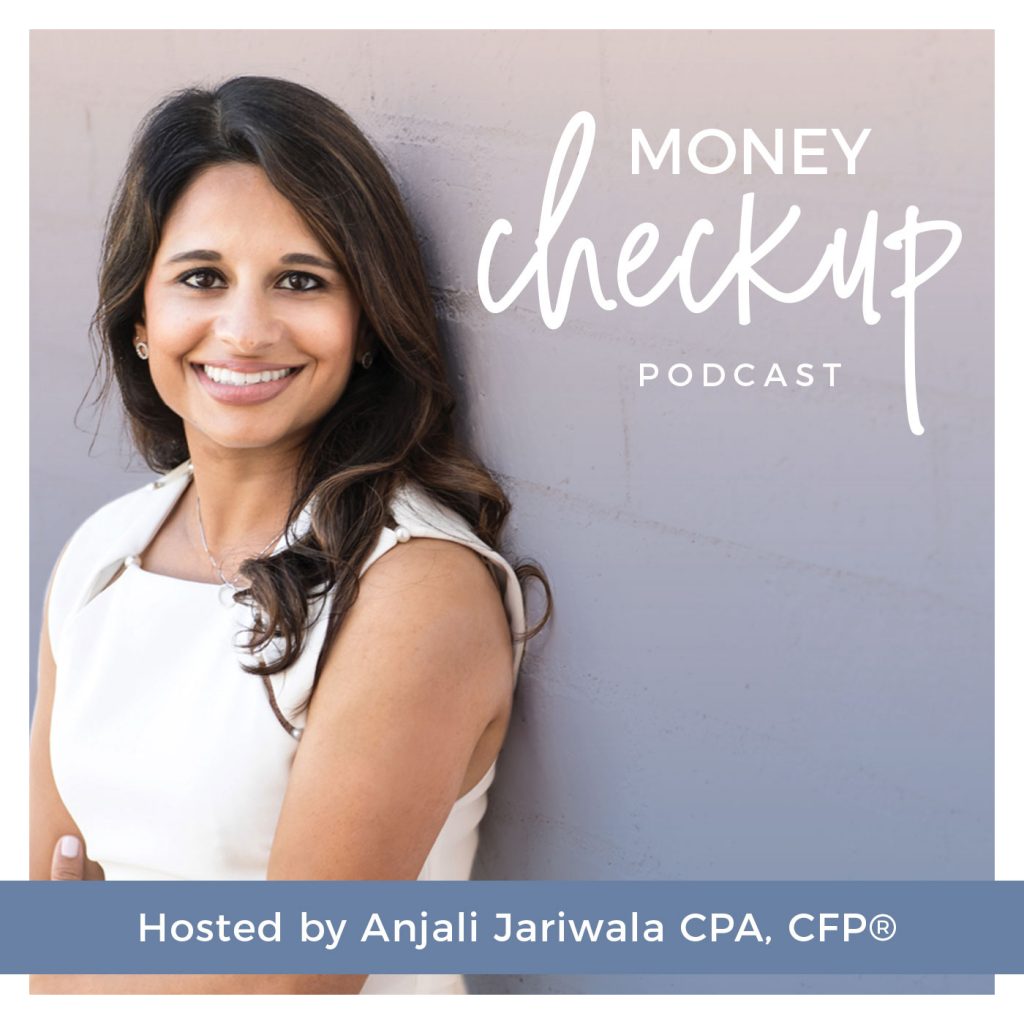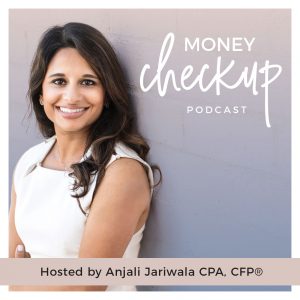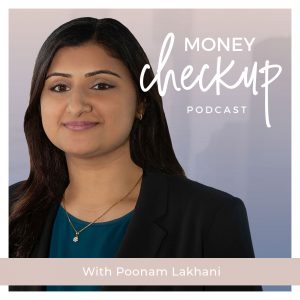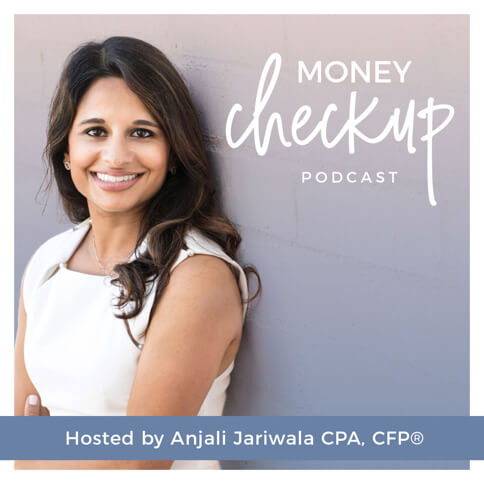Anjali Jariwala, CPA, CFP® is the founder of FIT Advisors. She works with physicians and business owners to build stable financial futures and use their money in ways that support their values.
“Give yourself a year-end checkup just to make sure that you’re set for not only this year, but set up appropriately for 2020.”
KEY RESOURCES REFERENCED IN THIS EPISODE
- For more about P&C insurance, try Money Checkup Episode 20.
- For more on retirement plans for small business owners, try Episode 13.
- For more on life insurance, try Episode 16.
- To learn more about college savings options, read this blog post.
- To better understand your small business’s financials, read this.
EPISODE HIGHLIGHTS
- As soon as possible, revisit your retirement plan contributions. You can contribute up to $19,500 to a 401(k) in 2020, plus an additional $6,500 if you’re 50 or older.
- Revisit your contributions to your HSA and deferred compensation plans. HSA limits for 2020 are $3,550 for individuals and $7,100 for couples, plus an additional $1,000 per person if you’re 55 or older.
- Do a detailed review of your cash flow so you know how much you bring in, how much you spend and how much you save. Start by listing all your fixed expenses. Then prioritize your savings for both short-term and long-term goals.
- However much income is left is how much you have available for discretionary spending. review your recent credit card and bank statements to see how much you spend in various discretionary categories, including eating out, shopping and entertainment. If you’re spending more than you’d like to, put yourself on a budget in 2020.
- If you contribute to a 529 or other college savings plan, revisit your contributions at the start of the year. Find out if your state offers a tax deduction to contributing to their college savings plan. In general, I recommend that my clients invest 50% of the cost of college in a 529 and 50% in a taxable investment account.
- Check your credit report using annualcreditreport.com or a free credit monitoring service.
- Calculate your net worth annually. To do this, list your assets and then subtract your liabilities or debts. If your net worth is growing, is it due to increasing assets, shrinking debt, or both?
- Review your debt. A good rule of thumb, generally, is to carry debt worth less than 28% of your pre-tax income. Work with your financial advisor to eliminate your high-cost, non-tax-deductible consumer debt and gradually pay down your other debts.
- Review your insurance policies. Is your umbrella coverage sufficient for your net worth? Has your income increased such that you need more life or disability insurance?
- Lastly, for individuals: Review your investment portfolio. Revisit your investment allocations to make sure they are consistent with your projected retirement date, and work with your financial advisor to identify tax-efficient investments. Rebalance your investments if necessary.
- Business owners: Use the start of the year to clean up your books. See if your accounting practices are providing the data you need to effectively run your business. If you’re in the service sector, break out your revenue and expenses by service to understand how profitable each revenue stream is. If you have employees, try to understand the revenue generated by each person.
- Compare your 2019 P&L to those of prior years. How much did your revenue, expenses and profit change? Compare the reality to your projections from last year, and use your experience to set goals for 2020. Work with a financial advisor or CPA to make projections for the next 1, 3, 5 and 10 years.
- If you own an S Corp, note that negative equity means you pulled out more than you should have from your business, and you may need to pay tax on your withdrawals.
- Review your tax payments from 2019. If you haven’t yet made sufficient payments, put aside money for the bill that will be due April 15, and update your accounting procedures so you make on-time payments throughout 2020.
- If you own an S Corp, talk to your CPA about revising your salary for 2020. And if you don’t yet have a retirement plan set up for your business, talk to your financial advisor about whether that’s a realistic goal for 2020.
- You don’t need to address every single one of these goals in January. Focus on those that feel most pressing to you and your situation, and work with a financial advisor to prioritize those.
STAY IN THE LOOP WITH US!
Follow FIT Advisors on Facebook, LinkedIn, or Twitter, or sign up for our monthly email newsletter at the bottom of the homepage.
Do you like Money Checkup? Please be sure to let me know by rating and reviewing the show!
If you loved this episode, try Episode 23: How Business Owners Can Build Balanced Lives.




